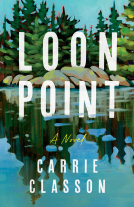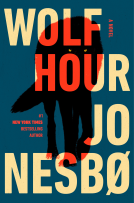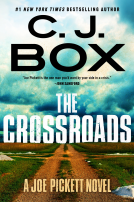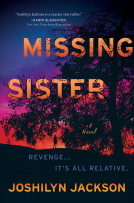Please wait... This may take a moment.
News for the Rich, White, and Blue
How Place and Power Distort American Journalism
This title was previously available on NetGalley and is now archived.
Pub Date
Jul 06 2021
| Archive Date
Oct 06 2021
Description
As cash-strapped metropolitan newspapers struggle to maintain their traditional influence and quality reporting, large national and international outlets have pivoted to serving readers who can and will choose to pay for news, skewing coverage toward a wealthy, white, and liberal audience. Amid rampant inequality and distrust, media outlets have become more out of touch with the democracy they purport to serve. How did journalism end up in such a predicament, and what are the prospects for achieving a more equitable future?
In News for the Rich, White, and Blue, Nikki Usher recasts the challenges facing journalism in terms of place, power, and inequality. Drawing on more than a decade of field research, she illuminates how journalists decide what becomes news and how news organizations strategize about the future. Usher shows how newsrooms remain places of power, largely white institutions growing more elite as journalists confront a shrinking job market. She details how Google, Facebook, and the digital-advertising ecosystem have wreaked havoc on the economic model for quality journalism, leaving local news to suffer. Usher also highlights how the handful of likely survivors—well-funded media outlets such as the New York Times—increasingly appeal to a global, “placeless” reader.
News for the Rich, White, and Blue concludes with a series of provocative recommendations to reimagine journalism to ensure its resiliency and its ability to speak to a diverse set of issues and readers.
As cash-strapped metropolitan newspapers struggle to maintain their traditional influence and quality reporting, large national and international outlets have pivoted to serving readers who can and...
Description
As cash-strapped metropolitan newspapers struggle to maintain their traditional influence and quality reporting, large national and international outlets have pivoted to serving readers who can and will choose to pay for news, skewing coverage toward a wealthy, white, and liberal audience. Amid rampant inequality and distrust, media outlets have become more out of touch with the democracy they purport to serve. How did journalism end up in such a predicament, and what are the prospects for achieving a more equitable future?
In News for the Rich, White, and Blue, Nikki Usher recasts the challenges facing journalism in terms of place, power, and inequality. Drawing on more than a decade of field research, she illuminates how journalists decide what becomes news and how news organizations strategize about the future. Usher shows how newsrooms remain places of power, largely white institutions growing more elite as journalists confront a shrinking job market. She details how Google, Facebook, and the digital-advertising ecosystem have wreaked havoc on the economic model for quality journalism, leaving local news to suffer. Usher also highlights how the handful of likely survivors—well-funded media outlets such as the New York Times—increasingly appeal to a global, “placeless” reader.
News for the Rich, White, and Blue concludes with a series of provocative recommendations to reimagine journalism to ensure its resiliency and its ability to speak to a diverse set of issues and readers.
Advance Praise
"News for the Rich, White, and Blue provides clear-eyed accounting of the monumental challenges facing American journalism, and the rare non-nostalgic examination of how we've arrived here. At a time in which everyone is a media critic, they break into two distinct groups: those who criticize with the aim of further discrediting the press and those who offer critiques because they dream of a better, and thus stronger, fourth estate. It's clear that Nikki Usher belongs to the latter, and it would serve our industry and our democracy for us to truly wrestle with the implications of her research and what they should mean for our path forward."
--Wesley Lowery, Pulitzer Prize-winning journalist
"News for the Rich, White, and Blue provides clear-eyed accounting of the monumental challenges facing American journalism, and the rare non-nostalgic examination of how we've arrived here. At a time...
Advance Praise
"News for the Rich, White, and Blue provides clear-eyed accounting of the monumental challenges facing American journalism, and the rare non-nostalgic examination of how we've arrived here. At a time in which everyone is a media critic, they break into two distinct groups: those who criticize with the aim of further discrediting the press and those who offer critiques because they dream of a better, and thus stronger, fourth estate. It's clear that Nikki Usher belongs to the latter, and it would serve our industry and our democracy for us to truly wrestle with the implications of her research and what they should mean for our path forward."
--Wesley Lowery, Pulitzer Prize-winning journalist
Available Editions
| EDITION |
Other Format |
| ISBN |
9780231184670 |
| PRICE |
$35.00 (USD)
|
Additional Information
Available Editions
| EDITION |
Other Format |
| ISBN |
9780231184670 |
| PRICE |
$35.00 (USD)
|
Average rating from 8 members
Featured Reviews
 Michael T, Educator
Michael T, Educator
3 stars
3 stars
3 stars
3 stars
3 stars
An effective if occasionally dry assessment of the dire situation that journalism is in right now, how their actions and events got themselves there, and the incredibly grim prospects of escaping from the depths it has sunken to.
3 stars
3 stars
3 stars
3 stars
3 stars
 Ruslan T, Media/Journalist
Ruslan T, Media/Journalist
4 stars
4 stars
4 stars
4 stars
4 stars
The book shows the situation among the publications in the United States and the trends in the media overseas. However, the book can also serve as an example for the media in Europe. Particularly interesting are the examples and the focus on local media, which are experiencing more and more problems to survive. I recommend it for people with an interest in the topic.
4 stars
4 stars
4 stars
4 stars
4 stars
Readers who liked this book also liked:
Loon Point
Carrie Classon
General Fiction (Adult), Women's Fiction
Pendergast
Douglas Preston; Lincoln Child
General Fiction (Adult), Mystery & Thrillers
Anatomy of an Alibi
Ashley Elston
General Fiction (Adult), Mystery & Thrillers, Women's Fiction
Wolf Hour
Jo Nesbo
General Fiction (Adult), Mystery & Thrillers
Jigsaw
Jonathan Kellerman
General Fiction (Adult), Mystery & Thrillers
Missing Sister
Joshilyn Jackson
General Fiction (Adult), Mystery & Thrillers, Women's Fiction
Adrift
Will Dean
General Fiction (Adult), Mystery & Thrillers
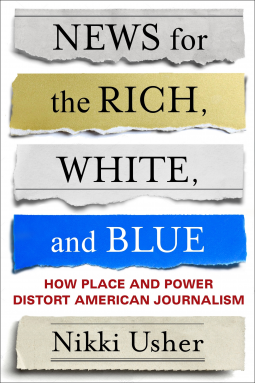
 Michael T, Educator
Michael T, Educator


